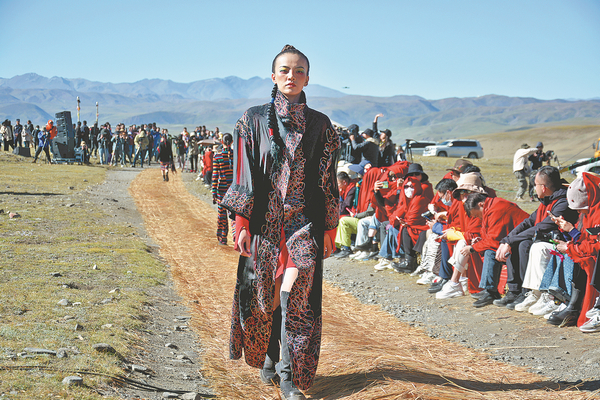

"There is zero waste as the remaining materials are made into products, such as earrings and puppets," Guo says.
She believes that the integration of traditional handicrafts with the market economy is a smart way of contributing to the preservation of traditional culture; the more people purchase, the more it contributes to cultural inheritance.
"I am looking forward to using the market as an engine to promote the creative transformation and innovative development of intangible cultural heritage. Surprisingly, nambu products are highly sought-after by both domestic and overseas consumers, and they have to reserve their purchases in advance," she adds.
Champa, who works at a Tibetan clothing cooperative in Gyalze township in Gyalze county, says that he and his colleagues are pleased to be working with Sand River, and that it has boosted their business.
The cooperative comprises 15 members from 15 households, most of whom are women. In the past, they only made traditional clothing and Tibetan carpets from wool and cashmere, and business was not very good as the market was limited.
"By working with Sand River, our orders have reached 200,000 yuan ($27,000) this year, and we have signed a contract for 3 million yuan worth of orders in 2024 already. It's a huge jump," says Champa.
His cooperative will add more advanced textile machines in the coming weeks, as well as 13 new staff members to raise production. Existing workers will each take an apprentice to train.
"Now we have a broader market; it encourages our cooperative members to work harder than before, as they earn more by doing so."
palden_nyima@chinadaily.com.cn